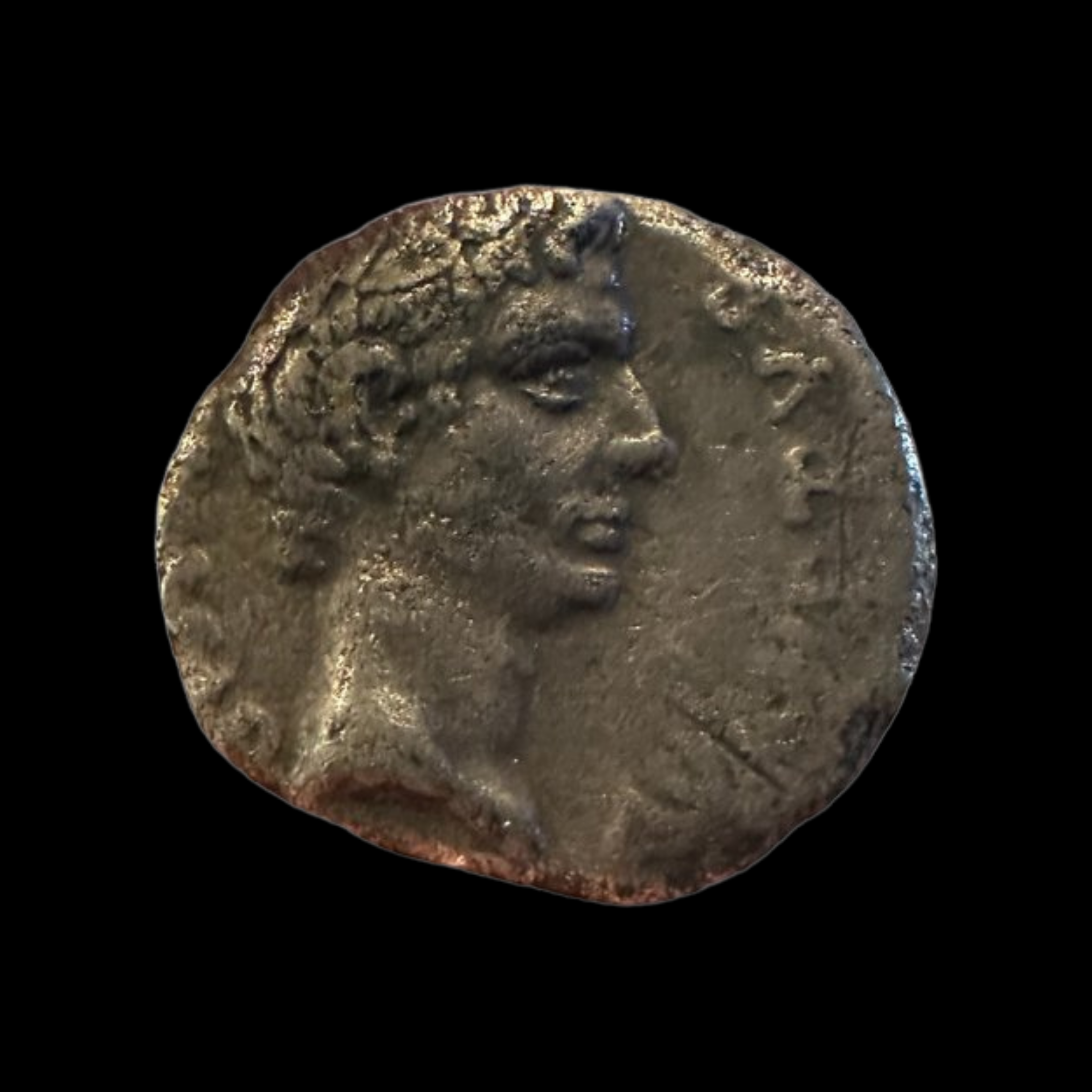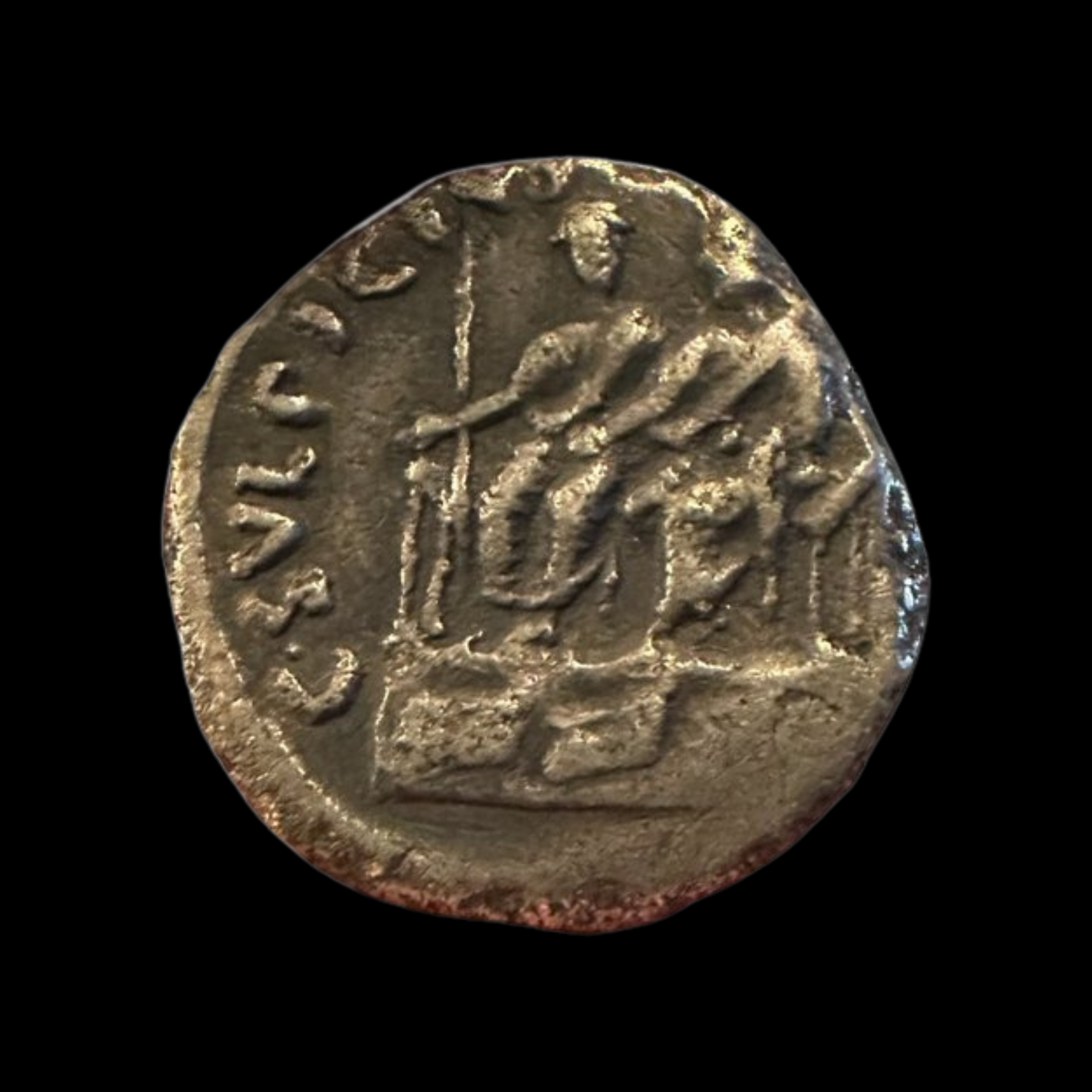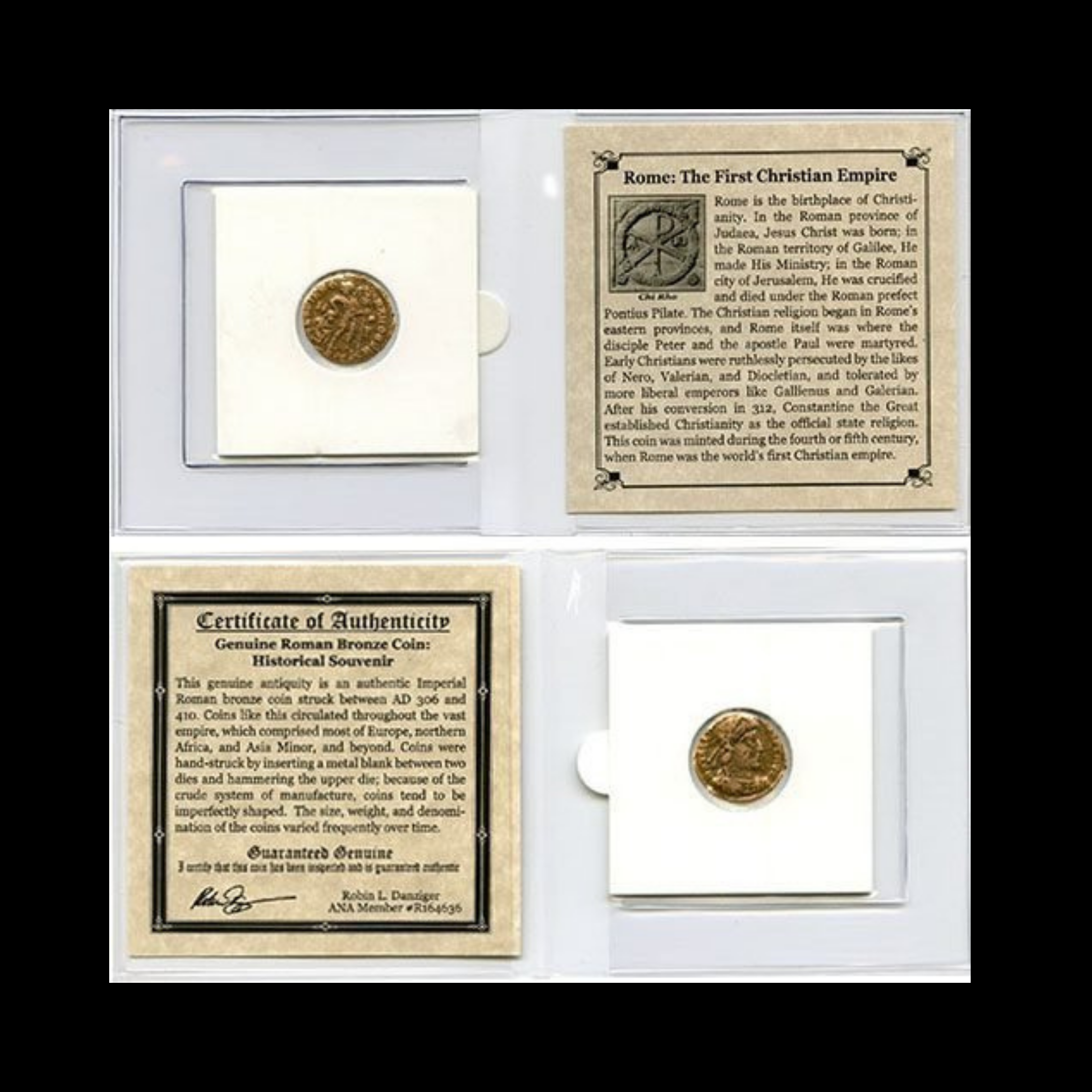 Image 1 of 2
Image 1 of 2

 Image 2 of 2
Image 2 of 2



Roman Silver Denarius (Silver Coin) of Augustus and Agrippa (about 2035 years ago)
This silver denarius (common Roman silver coin) was minted in 13 BC at Rome during the reign of Emperor Augustus.
Front Side: Features the bare head of Augustus facing right with the inscription "CAESAR AVGVSTVS" (Caesar Augustus)
Back Side: Shows Augustus and his friend/general Marcus Agrippa seated side by side on a platform decorated with three ship prows (rostra), with an apparitor's (official's) staff on the left, and the inscription "C SVLPICIVS PLATORIN" (name of the moneyer)
Technical Details:
Size: 17mm diameter
Weight: 3.32 grams
Orientation: 4H (die axis)
References: RIC I 407, SEAR 1599
Historical Significance: This coin commemorates the close partnership between Augustus, Rome's first emperor, and Marcus Agrippa, his most loyal general and friend. Agrippa was instrumental in Augustus' rise to power, particularly through his naval victory at Actium in 31 BC. The ship prows (rostra) on the platform likely reference this naval triumph. The coin demonstrates how Augustus used coinage to emphasize continuity of government and the importance of key allies in his new imperial system. By 13 BC, Augustus had firmly established his rule and was highlighting those who helped secure his position.
This silver denarius (common Roman silver coin) was minted in 13 BC at Rome during the reign of Emperor Augustus.
Front Side: Features the bare head of Augustus facing right with the inscription "CAESAR AVGVSTVS" (Caesar Augustus)
Back Side: Shows Augustus and his friend/general Marcus Agrippa seated side by side on a platform decorated with three ship prows (rostra), with an apparitor's (official's) staff on the left, and the inscription "C SVLPICIVS PLATORIN" (name of the moneyer)
Technical Details:
Size: 17mm diameter
Weight: 3.32 grams
Orientation: 4H (die axis)
References: RIC I 407, SEAR 1599
Historical Significance: This coin commemorates the close partnership between Augustus, Rome's first emperor, and Marcus Agrippa, his most loyal general and friend. Agrippa was instrumental in Augustus' rise to power, particularly through his naval victory at Actium in 31 BC. The ship prows (rostra) on the platform likely reference this naval triumph. The coin demonstrates how Augustus used coinage to emphasize continuity of government and the importance of key allies in his new imperial system. By 13 BC, Augustus had firmly established his rule and was highlighting those who helped secure his position.
This silver denarius (common Roman silver coin) was minted in 13 BC at Rome during the reign of Emperor Augustus.
Front Side: Features the bare head of Augustus facing right with the inscription "CAESAR AVGVSTVS" (Caesar Augustus)
Back Side: Shows Augustus and his friend/general Marcus Agrippa seated side by side on a platform decorated with three ship prows (rostra), with an apparitor's (official's) staff on the left, and the inscription "C SVLPICIVS PLATORIN" (name of the moneyer)
Technical Details:
Size: 17mm diameter
Weight: 3.32 grams
Orientation: 4H (die axis)
References: RIC I 407, SEAR 1599
Historical Significance: This coin commemorates the close partnership between Augustus, Rome's first emperor, and Marcus Agrippa, his most loyal general and friend. Agrippa was instrumental in Augustus' rise to power, particularly through his naval victory at Actium in 31 BC. The ship prows (rostra) on the platform likely reference this naval triumph. The coin demonstrates how Augustus used coinage to emphasize continuity of government and the importance of key allies in his new imperial system. By 13 BC, Augustus had firmly established his rule and was highlighting those who helped secure his position.
Gaius Julius Caesar Augustus (born Gaius Octavius; 23 September 63 BC – 19 August AD 14), also known as Octavian (Latin: Octavianus), was the founder of the Roman Empire. He reigned as the first Roman emperor from 27 BC until his death in AD 14.[a] The reign of Augustus initiated an imperial cult, as well as an era of imperial peace (the Pax Romana or Pax Augusta) in which the Roman world was largely free of armed conflict. The Principate system of government was established during his reign and lasted until the Crisis of the Third Century.
Octavian was born into an equestrian branch of the plebeian gens Octavia. His maternal great-uncle Julius Caesar was assassinated in 44 BC, and Octavian was named in Caesar's will as his adopted son and heir; as a result, he inherited Caesar's name, estate, and the loyalty of his legions. He, Mark Antony, and Marcus Lepidus formed the Second Triumvirate to defeat the assassins of Caesar. Following their victory at the Battle of Philippi (42 BC), the Triumvirate divided the Roman Republic among themselves and ruled as de facto dictators. The Triumvirate was eventually torn apart by the competing ambitions of its members; Lepidus was exiled in 36 BC, and Antony was defeated by Octavian at the Battle of Actium in 31 BC. Antony and his wife Cleopatra, the Ptolemaic queen of Egypt, killed themselves during Octavian's invasion of Egypt, which then became a Roman province.
























